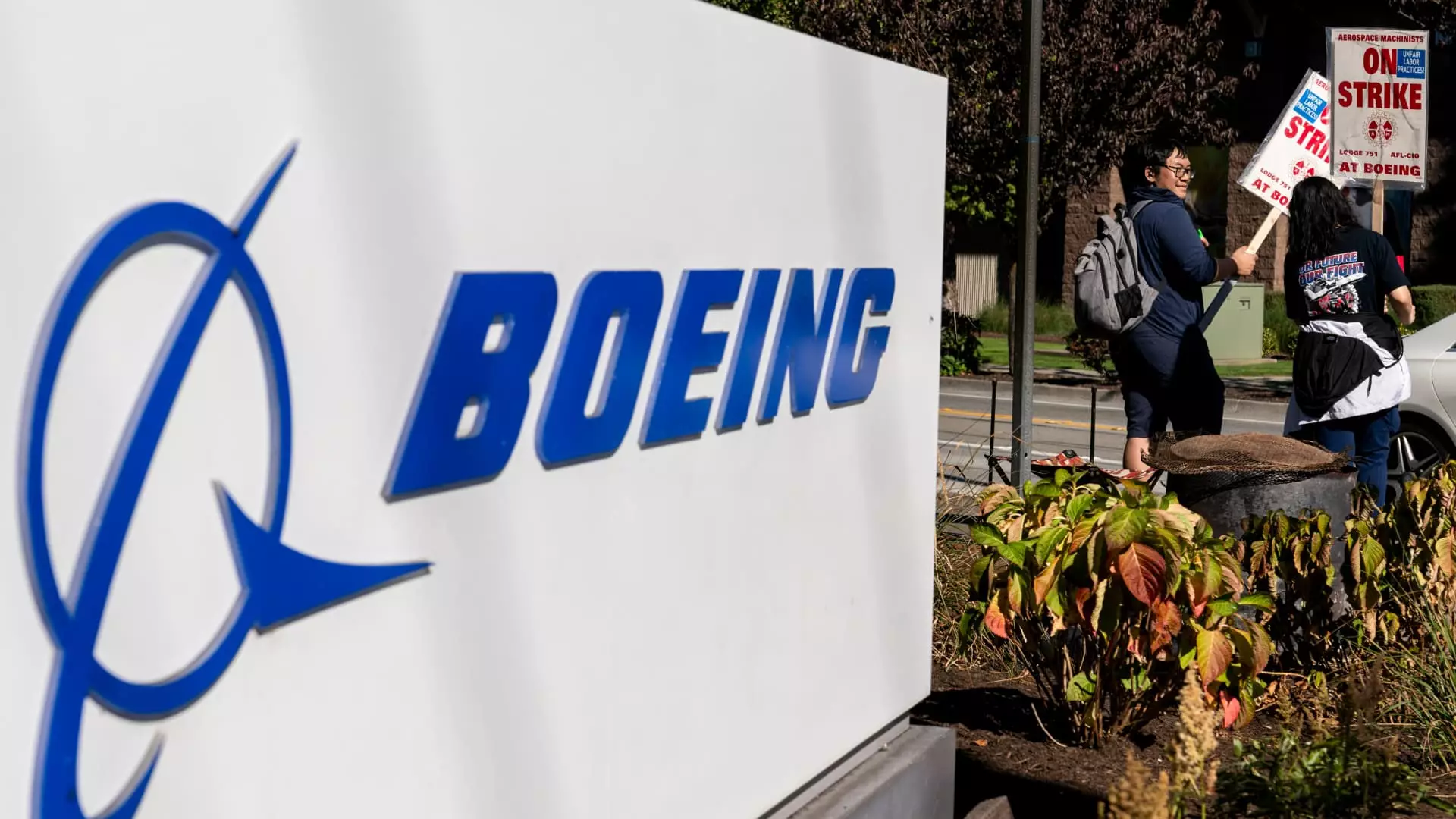The recent appointment of Kelly Ortberg as Boeing’s CEO marks a potential turning point for the iconic aerospace manufacturer. His inaugural quarterly call with analysts is crucial, providing a platform to articulate his strategic vision amid the chaos of ongoing labor disputes and financial setbacks. With Boeing grappling with a myriad of challenges, including strikes by machinists and critical safety concerns, Ortberg must not only address the current issues but also restore the damaged reputation of a company long revered in the industry.
Financial Review and Performance Overview
In its preliminary third-quarter results, Boeing reported $17.8 billion in revenue—a decrease of nearly 2% compared to the same quarter last year—alongside a staggering loss of $9.97 per share and a cash outflow amounting to $1.3 billion. The company ended the quarter with $10.5 billion in cash reserves and marketable securities, which, while substantial, underscores a concerning trend in liquidity and profitability. This financial landscape presents Ortberg with the daunting task of stabilizing the company’s finances while negotiating the wave of discontent among the workforce.
Over 32,000 machinists initiated a strike on September 13 after rejecting a contract proposal that incorporated significant raises. The ramifications of this strike are considerable, with estimates suggesting that Boeing could be losing around $1 billion monthly. Given the already fragile state of the aerospace supply chain, the need for a swift resolution to labor negotiations is pressing. A new proposal includes a more favorable 35% raise over four years, along with enhanced benefits—indicators that labor relations need thoughtful navigation to avoid further destabilization within the company.
Analysts project that Boeing’s third-quarter loss per share will be approximately $10.52, with revenue anticipated to remain around $17.82 billion. The expectation of these figures illustrates a cautious optimism that might reflect confidence in Ortberg’s leadership despite the surrounding difficulties. The imminent results from the machinists’ vote are critical not only to the company’s immediate future but also to restoring confidence in Boeing’s ability to emerge from its current predicament with resilience.
Strategic Decisions Ahead
As the newly appointed CEO, Ortberg’s decisions will define the trajectory for Boeing moving forward. With plans to reduce the workforce by 10% and proactive measures to address quality control issues, the extent of institutional change required is daunting. He has expressed the necessity of making “tough decisions” to secure competitiveness in the long term—a sentiment that echoes throughout various sectors as organizations wrestle with operational optimization in a drastically changing market.
Boeing stands at a critical juncture, poised between the opportunities for revitalization and the specters of past failures. It is crucial for Ortberg to balance immediate concerns while fostering a culture of quality and trust, not just within the workforce, but also among stakeholders and consumers who are ever-watchful of the company’s recovery efforts. The coming weeks will indicate whether this pivotal moment will lead to renewed growth or further entrenchment in troubles.


Leave a Reply